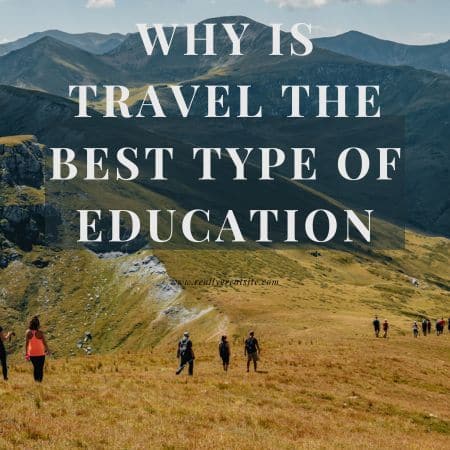What Makes Travel the Greatest Teacher
Travel is an experience that brings with it a sense of widening eyes, enhancement of the spirit, and lessons that cannot come from textbooks or classes. In today’s world, where interaction with people from diverse cultures, concepts and circumstances is vital, travel is the best educator one can ever have; what it preaches is self-sufficiency, building skills, developing appreciation, combatting stereotypes, and most importantly, learning; which is why it is one of the best forms of education.
1. Travel is the Greatest Teacher There Is
Education usually revolves around classrooms, books, and lectures, which include great insights but do not always focus on practicality. This always remains a missing part, which travel fills through real-life experiences that enable you to understand the concepts in a more profound manner. For instance, rather than simply reading about the Colosseum, one can actually witness the grandeur of the structure and visualise the gladiators fighting, the Rome and Italy in their full bloom. Travel helps in framing memories, remembering lessons, and seeing concepts from the other end in so much depth that is hard to forget.
2. Witnessing A Variety Of Cultures
Corporations and companies often encourage their employees to travel more often as exposure to travel has its benefits. Each place we visit, be it a country, region, or community, has different customs, languages, and modes of living, and immersing oneself in such experiences teaches one empathy among many other things. For instance, a Japanese tea ceremony can instil within an individual qualities like respect, patience, and mindfulness, which are hard to find in formal education. Such lived experiences allow one to comprehend the many layers of humanity and the interconnectedness across all cultures.
3. Gaining Flexibility And The Ability To Conquer Problems
Travel is capricious by nature and as such provides people with the ability to be flexible and find solutions to a variety of problems. Travel can lead to missed flights because sometimes booking systems malfunction, people can struggle to communicate with others due to different dialects, or even get lost while walking between unfamiliar buildings. Such situations create a demand for survival skills and resourcefulness which are invaluable in this world, whether economically or socially. Travelling allows one to tackle challenges in the real world precisely because the classroom has its barriers or restrictions. Such exposure in the real world is beneficial for gaining independence.
4. Learning Through Contact with Other People
Travelling allows one to engage with many people and this is perhaps one of the greatest benefits. This exposure offers more than what any educational programme can offer. These introductions frequently engender fruitful exchanges of ideas, eradicating stereotypes while reinforcing a common humanity. Such connections are proof of our common challenges and hopes that exceed physical and geographical boundaries.
5. Language Acquisition in Context
Communication is one of the most effective instruments in the world and travel is one of the best ways to learn it. Being in a foreign country enables travellers to learn the language without being conscious of it, and in a short time too. Language becomes active in everyday situations such as ordering food in cafés in Paris, haggling in markets in Marrakech, and communicating in simple terms of asking for directions in Tokyo. This last method, however, is often more useful in the long run as it is more applicable than simply learning in a classroom.
6. Acquiring Historical and Topographical Knowledge
In addition, these travellers also come to comprehend better over the numerous interweaving threads that make up historical events, as well as their connection or bearing on the modern world. It is the same regard for history which makes them wish to see the modern world’s wonders, such as geography’s marvels like the Northern Lights or natural ones, the Grand Canyon. All these make classes in environmental science or geology more interesting and complete.
7. Enhancing Certain Aspects of Life and Wonder
We definitely can imagine how inspiring new surroundings can be. Many painters, authors, and thinkers have travelled, because they deem it helpful for their work. Different views on things can be generated by architecture, place, or even a plethora of art forms. For example, new inventions may come up due to the young generation being fascinated by the intricate and delicate patterns which adorn the breathtaking Taj Mahal or the awe-inspiring graffiti that characterises Buenos Aires as a leading city of pure art. Travel encourages people to consider new options, expanding the scope of their imaginations.
8. Gaining Insight into International Relations
With the world experiencing globalisation, it is important to comprehend how the economies, cultures, and ecosystems are connected. It’s different to hear about these issues than to witness them, which is why travel is so important. Looking at the factories in China, eco-tourism in Costa Rica, or even Alaska’s or Finland’s sustainable practices, allows the traveller to fathom the complex nature of the global system as a whole. Travel promotes an active citizenship on a global scale, making the citizen a critical player in international relations.
9. Progressing Towards Self-Knowledge and Self-Assurance
For instance, one is reaching out to live in diverse countries and societies, and that would be the self-test of gaining independence and conviction. The mainstream culture of these places finds it quite difficult to accept foreigners and that is exactly what drives one to try hard to gain their respect and sense of confidence. A father’s anger raging over the loss of an arctic cod or volunteering in an impoverished African town – it all becomes part of the same narrative of love that knows no boundaries and restrains nothing.
10. Eliminating Stereotypes
This is attributed to the majority of people’s ignorance and lack of exposure. Travelling gets rid of these pre-formed ideas because people travel and get to know the truth. Everybody knows the Holiest Land is the Middle East or even the land of Prophets, there are warm people who have plenty of love in their hearts and would have the world think otherwise. These ideas foster relations and encourage ones that would be helpful towards the development of the idea of an inclusive society.
11. Advocating for Educational Improvement Solutions
Travel is the most excellent teacher – as well as sparking curiosity and the want for acquiring knowledge. Why is it noted everywhere as a must-visit holiday destination? Italian cooking, Africa’s wildlife, and the religions of India all offer this. This active, ongoing education – travelling – elevates life, keeping the brain and the mind busy long after schooling has finished.
12. Increasing Consciousness About Nature Protection
Here, more importantly, tourism associated with the natural environment aims to highlight concerns about the prevention of damage to our world. The need to be responsible is accentuated by seeing how delicate and beautiful coral reefs are or how mighty and calm the rainforests are. Travellers usually come from such exposure with the urge to change their lifestyles a little and be in more harmony with nature, which all together helps the cause of climate change.
Travelling is not merely for pleasure or for fleeing; it is, in fact, a most powerful form of education which goes on to shape a person’s character in the most positive ways. While travel exposes the traveller to diverse world cultures, ideas and challenges, it helps develop maturity, comprehension, along with a feeling of being a citizen of the wider world. Learning through travel is not merely an ordinary education; rather it is one that is self-centred, unique, and is bound to last forever; it prepares an individual with the necessary tools to deal with the new and complicated intricacies of life.
To sum up, it may be right to say that the world is life’s biggest classroom and travel is the best subject it has to offer. To quote Saint Augustine, who in this case could not have executed a better observation: “The world is a book, and those who do not travel read only one page.“ If we accept the concept that travelling is a mode of education, then it would mean that we open ourselves to the innumerable possibilities that the world has in store.

